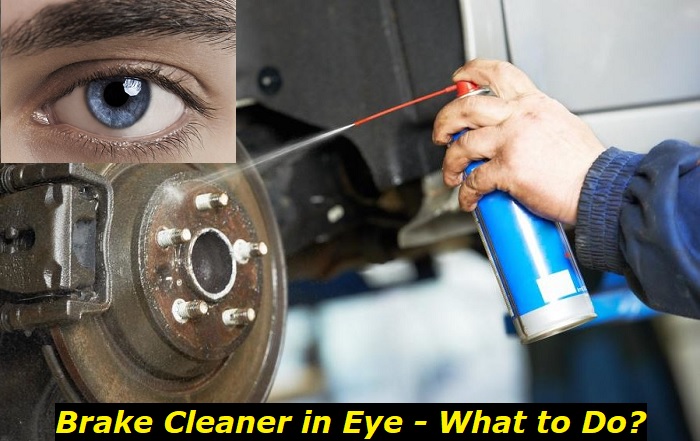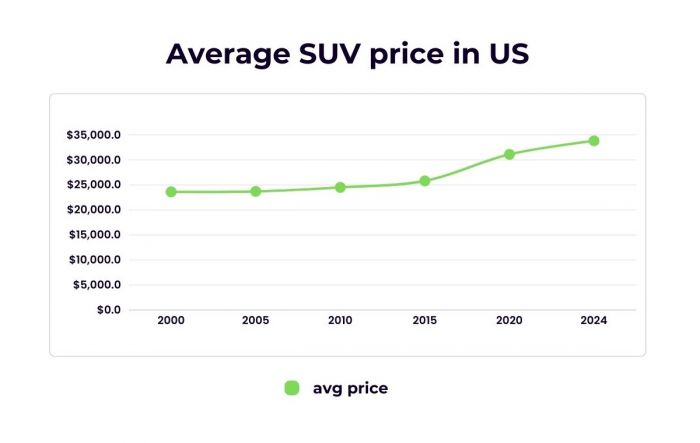Our eyes are considered to be one of the most sensitive parts of our body. Their proper function is essential to our survival and most may agree that they have the most impact on our daily activities. In short, they are our greatest asset.
Brake fluid problems highlights
- Level of urgency:super-urgent
- DIY diagnostics:usually,impossible
- DIY repairs:impossible
- Price for repair:$250 - $650
- Common symptoms:pedal goes to the floor, braking efficiency low, leaks
- Commonreasons:brake lines leaking, low fluid,badfluid
- If ignored:no brakes, getting into accidents, poor safety when driving

What a Brake Cleaner Does
Brake cleaners are formulated to quickly and effectively remove brake fluid, grease, oil, and other contaminants from brake assemblies. They typically contain a high percentage of petroleum distillates, which are very effective in dissolving and flushing away these types of deposits.
In addition, most brake cleaners also contain solvent-based degreasers that further help to break down and remove stubborn grime. When used properly, brake cleaners can help restore braking performance and extend the life of your brakes.
Tetrachloroethylene (also known as perchloroethylene or PERC) is a common ingredient in brake fluids because it effectively dissipates heat and helps keep the brake system cool. It aids in preventing corrosion and wear on the brake components, too.
How to Treat Brake Fluid in the Eyes
A brake cleaning fluid is dangerous to the eyes because it can cause irritation, redness, and burning. It can also lead to blurred vision and temporary blindness. In severe cases, it can cause permanent damage to the cornea or even complete loss of vision.
If you get brake cleaner fluid in one or both of your eyes, it is important to act quickly and flush the area with clean, running water for at least 15 minutes. If you are having problems with one or both of your eyes, which may limit your vision or action, ask for immediate help from people close to you and call 911.
Do not use any other chemicals, such as soap, ointment, or other types of liquid except water, to try to remove the brake cleaning fluid. This will only further irritate the affected part, and some of these may trigger a chemical reaction with the active ingredients of the brake fluid, which can make the situation worse.
If you are wearing contact lenses, be sure to remove them before flushing the contaminated part with water. If you are having difficulty removing your contact lenses, flush the area with water for as long as possible as you await medical attention. Do not wait to see if the symptoms resolve on their own, as they may worsen and cause more damage.
Once you have flushed your affected eye with water, remove any clothing or jewelry that may have come into contact with the brake fluid. If possible, take a shower and thoroughly wash your body for any other form of probable exposure to the chemical.
For unbearable pain, redness, or swelling after flushing the area with water, you may need to receive additional treatment, such as antibiotics, to prevent infection. As most of these normally require a prescription, you may also need to call a doctor at this point.
You may be subjected to an eye irrigation treatment upon your confinement to the emergency room (ER) as well, which involves continuously flushing your contaminated eye with a sterile solution to remove any remaining brake fluid.
This requires placing a contact lens-like apparatus in your affected eye, which is then connected to a drip tube to ensure the proper flow of the sterile solution and to prevent you from blinking using your affected eye. This treatment may need to be repeated several times over the course of a few days depending on the advice of your doctor.
If you experience any other negative effects, such as dimmed eyesight or extreme aching, these symptoms could indicate more serious damage, such as a corneal ulcer, and prompt treatment is necessary to prevent further damage. Describe in detail what you feel to your doctor or first aid provider to get the necessary treatment immediately.
In severe cases, you may require surgery or even a corneal transplant. This is a surgery that replaces the damaged tissue in your eye with healthy tissue from a donor.
Eye injuries can rapidly deteriorate your sight and cause permanent damage if they are not treated promptly and properly. By taking these precautions, you can prevent serious or permanent damage to your eyes.
Preventing Brake Fluid from Getting in Your Eyes
The best way to prevent brake cleaning fluid from getting in your eyes is to take proper safety precautions when working with it. Here are ways you can protect yourself and others from the potential hazards caused by brake cleaners:
- Always wear gloves, appropriate clothing, and eye protection like eye goggles when handling brake fluid.
- Be sure to work in a well-ventilated area to avoid inhaling fumes.
- Keep brake fluid containers tightly sealed.
- Wipe up any spills immediately and dispose of cloths or rags saturated with brake fluid in a sealed container.
- Never smoke or allow open flames near brake fluid as it is highly combustible.
- Only use the right amount of brake fluid needed for the job and avoid applying more than necessary.
- Never use any other chemicals, such as soap or other solution, to clean up brake fluid as these can potentially trigger a chemical reaction that may be hazardous for you.
- Be sure to thoroughly wash your hands and any other exposed skin after working with brake fluid.
- Keep them away from the reach of your children and pets when not in use.
- Always follow the manufacturer's instructions when using brake cleaners or any other chemicals.
A brake cleaner is an important part of keeping your brakes in good working condition. However, it is also a dangerous substance that can cause serious harm if not used properly. By taking the necessary precautions when handling brake fluid and other chemicals used in vehicle maintenance, you can protect yourself and those around you from the potential dangers of brake cleaner fluid as you keep your brakes functioning properly.
Other Kinds of Damage Brake Cleaners Can Cause
Brake cleaner fluid can also cause harm to other parts of your body if it is not used safely. Respiratory problems can occur from breathing in the fumes of brake cleaners, and skin contact with the fluid can trigger irritation or chemical burns. It is important to take proper precautions when using brake fluid.
If you have accidentally inhaled brake cleaner fumes, move to a ventilated area immediately and seek medical attention. You may also need to undergo respiratory treatment for prolonged exposure depending on the advice of your doctor.
Similarly, if your skin comes into contact with brake cleaner fluid, flush the affected area with clean water for at least 15 minutes. Again, avoid using any other chemicals as you do so unless advised by a medical professional. If you can, remove your clothes immediately and have a shower. Don't use your contaminated clothes again and discard them accordingly. If there is any irritation or pain, seek medical help.
Moreover, brake cleaners can result in environmental damage if they are not used or disposed of properly. When you are finished using brake cleaners, dispose of the fluid in a designated container for hazardous waste. You should never pour brake cleaners down the drain as this can contaminate water supplies.
If your pets happen to be exposed to brake cleaners, immediately wash their fur with running water. If you can, remove any contaminated clothing or collar they are wearing and dispose of them properly. Seek professional help from a veterinarian if your pet noticeably experiences any adverse effects from brake cleaner exposure.
Furthermore, if accidentally ingested, a brake cleaner fluid can cause gastrointestinal problems and should be immediately flushed from your system by drinking lots of water. Seek medical help as soon as possible if you have accidentally drunk this fluid. Do not, in any way, induce vomiting as you wait for medical attention as this could lead to added damage to your internal organs.
In addition to PERC, another chemical commonly used in making brake fluid is Diethylene glycol, a toxin that can result in renal failure, metabolic acidosis, coma, and death. So, act immediately in this situation but avoid panicking as much as possible.
By taking the necessary precautions when using brake cleaners, you can prevent harm to yourself, those around you, and the environment. Brake cleaners are an important part of maintaining your brakes but should always be used with care.
Conclusion
The best way to prevent brake fluid from getting in your eyes is to avoid using it altogether. If you need to do so, be sure to exercise the necessary safety precaution. Always wear protective equipment to shield your eyes and the rest of your body from any splashes or fumes resulting in the use of the solution.
Should your eyes, skin, and other parts of your body come in contact with the chemical in any way, be sure to wash it off immediately as instructed here, and don't hesitate to seek help from a medical professional to get the right treatment for your situation in a timely manner.
About the authors
The CarAraC research team is composed of seasoned auto mechanics and automotive industry professionals, including individuals with advanced degrees and certifications in their field. Our team members boast prestigious credentials, reflecting their extensive knowledge and skills. These qualifications include: IMI: Institute of the Motor Industry, ASE-Certified Master Automobile Technicians; Coventry University, Graduate of MA in Automotive Journalism; Politecnico di Torino, Italy, MS Automotive Engineering; Ss. Cyril and Methodius University in Skopje, Mechanical University in Skopje; TOC Automotive College; DHA Suffa University, Department of Mechanical Engineering






Add comment